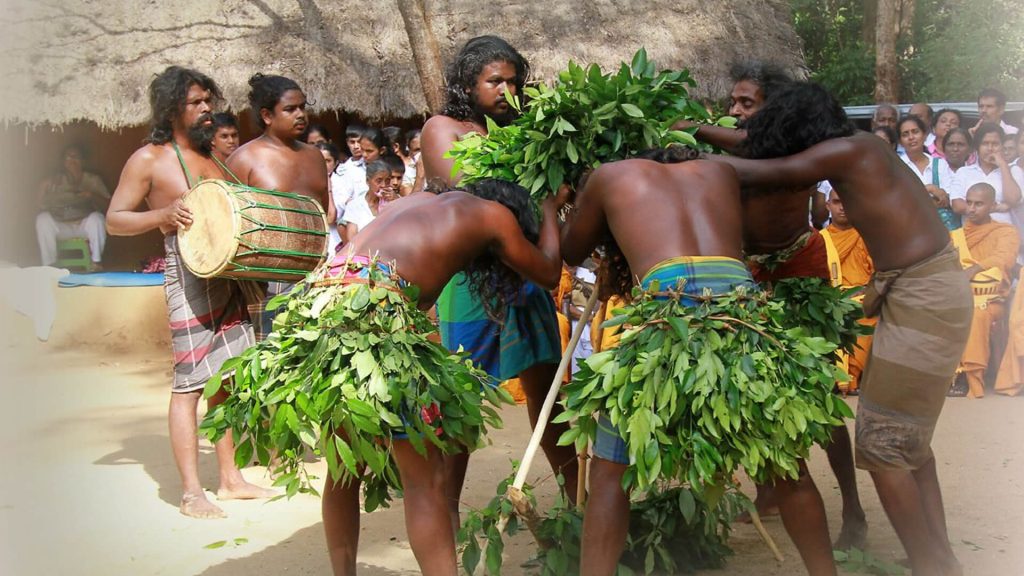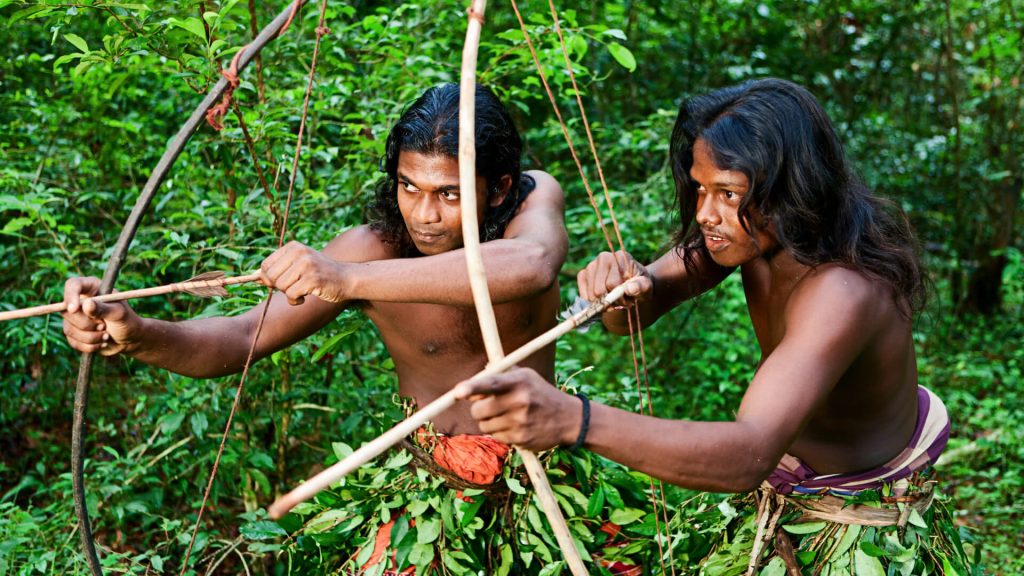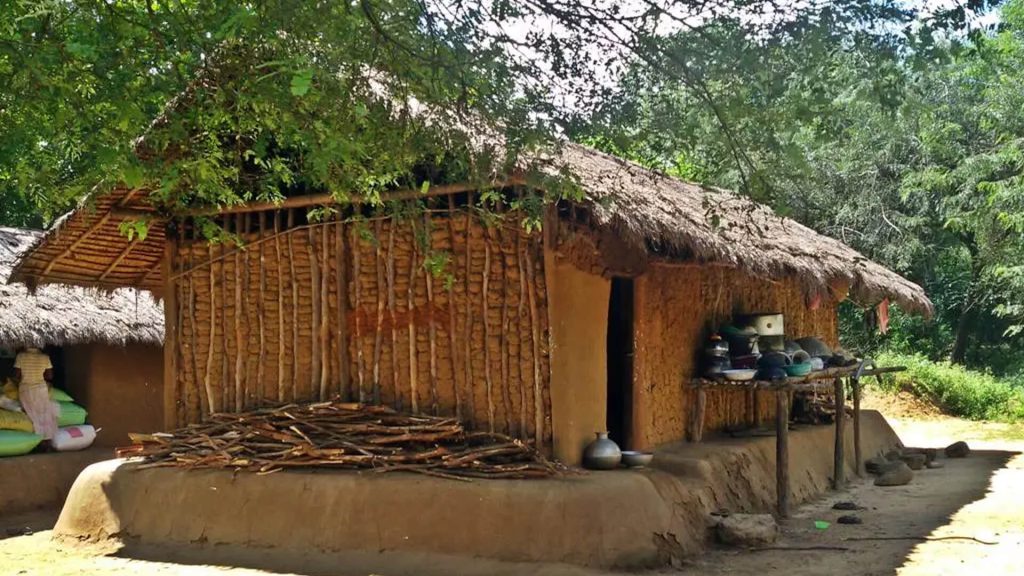The Vedda community, also known as the Wanniyalaeto, represents the indigenous heritage of Sri Lanka. They trace their lineage back to the island’s earliest inhabitants and have maintained their distinctive lifestyle, language, and customs despite the pressures of modernization.

Origins and Anthropology:
The Vedda people’s beginnings are intertwined with the island’s ancient history, believed to descend from Sri Lanka’s original Neolithic inhabitants, dating back over 16,000 years. Genetic research indicates a close relationship between the Vedda and indigenous groups in Southeast Asia and southern India. The Vedda language, now at risk of extinction, includes a unique clicking sound, distinguishing it from other local languages.
Geographical Distribution:
The Vedda once roamed extensive areas of Sri Lanka as nomadic hunter-gatherers. Presently, their communities are primarily situated in the North Central, Uva, and Eastern provinces, with a significant presence in Dambana, a village within the Mahiyangana region, which is recognized as the heartland of the Vedda population.
Lifestyle:
The Vedda have traditionally lived in sync with the environment. Their subsistence depends on hunting, fishing, and gathering forest produce like fruits, yams, and honey. They construct simple shelters and engage in shifting cultivation, planting crops such as millet, corn, and tubers.

Beliefs, Rituals, and Culture:
Vedda’s spiritual practices are deeply rooted in nature. They follow animism, venerating ancestral spirits and natural elements. Their ceremonies often involve offerings to the forest gods for blessings in their subsistence activities. The Vedda also cherish a rich oral tradition, preserving songs and tales that reflect their history and the environment.

Challenges:
Today, the Vedda confront several issues, including displacement due to deforestation and development. Their traditional practices are also at risk due to the growing influence of the dominant Sinhalese culture. Initiatives are underway to safeguard their cultural heritage and language, but Vedda’s future remains uncertain.
Summary:
In summary, the Vedda community is a vital aspect of Sri Lanka’s diverse heritage. Their distinctive relationship with the land provides insight into the symbiotic bond between humans and nature and underscores the significance of preserving indigenous cultures amidst societal progress. It is imperative to ensure that the Vedda’s rights and customs are honored and sustained as Sri Lanka evolves.
